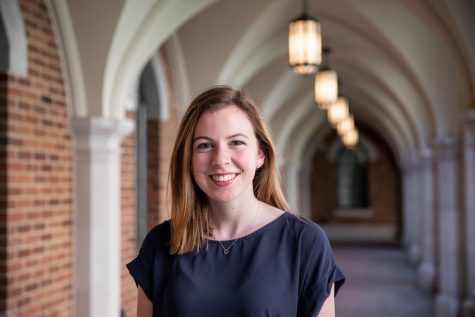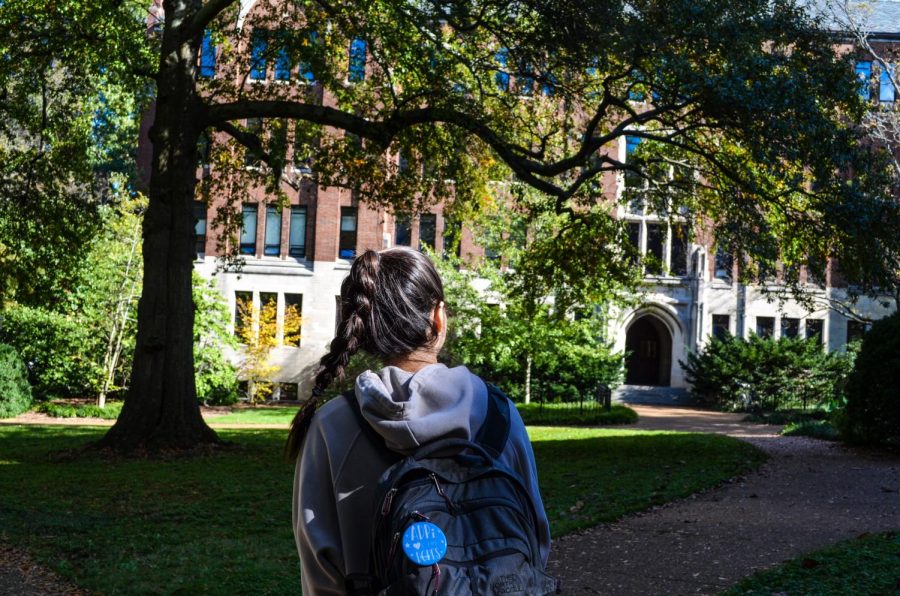Vanderbilt professor of Earth and Environmental Science Jonathan Gilligan published commentary Aug. 9 in Nature Sustainability on a study published July 22 in the same publication by postdoctoral fellow at the Institute for Applied Systems Analysis in Austria Sibel Eker. The study modeled various dietary behaviors from veganism to flexitarianism and their respective greenhouse gas emission output.
The study found that if nearly everyone went “flexitarian,” it would reduce greenhouse gas emissions more than if half the population went vegetarian. In the study, “flexitarian” meant consuming chicken and fish, but not red meat.
The production of red meat is one of the primary contributors to greenhouse gas emissions. This has led organizations, including Vanderbilt’s Campus Dining, to implement policies to reduce red meat consumption in their facilities. However, policymakers are unsure of what policies will be effective in causing consumers to change their dietary choices while minimizing backlash.
According to Gilligan’s commentary, studies like Eker’s can help amend the disparity between policies that appear effective on paper and policies people are likely to follow in that the study uses sociology to predict consumer’s behavior.
The study found that people were mainly motivated to change their eating behaviors in response to perceived risk to their personal health, or because of a desire to conform to social norms. The public is not as motivated by climate risk, the study also found. According to Gilligan, the fact that Eker’s study takes into account the psychological aspect of people’s dietary choices is what makes it so important to policy research.
As stated in Gilligan’s commentary, beef consumption in the United States has already dropped 33 percent since 1970. If people cut down on beef and lamb and instead eat chicken or fish, that could cut greenhouse gas emissions by a lot, according to Gilligan.
“The question is, how will people decide to do that?” Gilligan said. Most people feel like ‘if everyone else is getting vegetarian, I feel kind of like a jerk if I say I want a steak’
Gilligan pointed to two companies making headway in reducing greenhouse emissions through encouraging people to go meatless.. WeWork’s policy says that no employee may order meat for a company-paid meal. Alternatively, the Department of Management, Society, and Communication at the Copenhagen Business School has an “opt-in” policy for meals including meat, with a vegetarian meal as the default option for company meals.
Restrictive policies like WeWork’s have been somewhat unpopular, while opt-in policies have been more preferred, Gilligan said. However, opt-in policies are still effective by making vegetarianism the default.
“Most people feel like ‘if everyone else is getting vegetarian, I feel kind of like a jerk if I say I want a steak,’” Gilligan said.
Gilligan believes trying an opt-in policy at Vanderbilt could be successful in minimizing backlash against Campus Dining while still reducing red meat consumption.
“I think there’s a lot of potential. You’ll always get some pushback, but I think there’s enough potential that we should do experiments where we try this out in the U.S. and see how well it could work,” Gilligan said.
Gilligan also emphasizes the importance of finding appealing, convenient alternatives to red meat dishes, as well as the effectiveness of showing people the effects of their dietary choices.
“If the Vanderbilt dining halls would follow up and actually calculate the reduction in greenhouse gas emissions, that could make people say ‘yes, I’m really accomplishing something, and it wasn’t as hard as I thought it might be because Vanderbilt makes it easy to do it,’” Gilligan said.

















